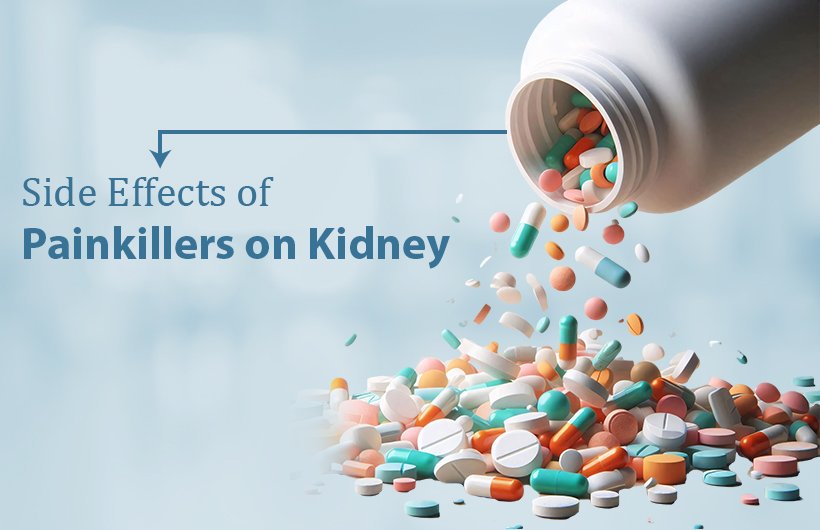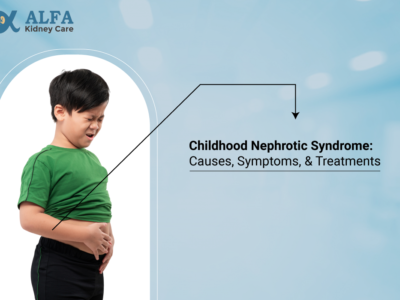Painkillers are a go-to remedy for many of us when we need relief from pain, whether it’s a nagging headache or something more chronic. They help us get through the day, but there’s a side to these medications that we don’t always think about—how they affect our kidneys. The side effects of painkillers on the kidney might not be something we talk about often, but they’re important to understand, especially if you rely on these drugs regularly.
Why Are Our Kidneys So Important?
To appreciate the potential risks, let’s first talk about what the kidneys do for us. Our kidneys are like the body’s natural filter system. They work around the clock to remove waste and extra fluid from our blood, keep our blood pressure in check, balance electrolytes, and even help produce certain hormones. Given all these vital roles, it’s clear that keeping our kidneys healthy is crucial to our overall well-being.
How Painkillers Can Impact Kidney Health
Painkillers, especially nonsteroidal anti-inflammatory drugs (NSAIDs) like ibuprofen, naproxen, and aspirin, are commonly used because they effectively manage pain and inflammation. But while they do a great job at this, their effects on the kidney can be harmful if we’re not careful. Let’s break down the main ways painkillers can affect our kidneys:
1. Acute Kidney Injury (AKI)
One of the most alarming side effects of painkillers on the kidney is Acute Kidney Injury (AKI). AKI is when the kidneys suddenly stop working as they should. This can happen pretty quickly and often leads to symptoms like less urine output, swelling, and feeling tired or confused. Painkillers can cause this by reducing blood flow to the kidneys, making it harder for them to filter waste. The good news is that AKI can sometimes be reversed if caught early, but if it’s not treated, it can lead to permanent damage.
2. Chronic Kidney Disease (CKD)
Chronic Kidney Disease (CKD) is another serious condition that can develop over time. Unlike AKI, CKD happens gradually, often without obvious symptoms until the damage is significant. Regular use of painkillers, especially NSAIDs, can contribute to this slow decline in kidney function. Over time, the kidneys can become scarred and less effective at filtering blood, which might eventually require treatments like dialysis or even a kidney transplant.
3. Analgesic Nephropathy
Analgesic nephropathy is a specific type of kidney damage caused by long-term use of painkillers, particularly those that combine NSAIDs with acetaminophen. This condition can lead to chronic damage to the kidneys, characterized by scarring and a gradual loss of kidney function. People who rely heavily on painkillers over many years are at higher risk of developing this condition, which underscores the importance of using these medications cautiously.
4. Electrolyte Imbalances
The kidneys do a lot more than just filter waste—they also help keep our body’s electrolytes, like sodium, potassium, and calcium, in balance. Painkiller side effects on the kidney can disrupt this balance, potentially leading to issues like high potassium levels (hyperkalemia) or low sodium levels (hyponatremia). These imbalances might not seem like a big deal, but they can cause serious problems, including irregular heartbeats, muscle weakness, and even confusion or seizures.
5. Increased Risk of Kidney Stones
Kidney stones are incredibly painful, and some painkillers, particularly those with acetaminophen, have been linked to an increased risk of developing them. These stones form when minerals and salts in the urine stick together, creating hard deposits that can cause excruciating pain as they pass through the urinary tract. If you’ve had kidney stones before, you might want to be especially careful with your painkiller use.
Who’s at Higher Risk?
While everyone should be aware of the side effects of painkillers on kidney health, some people are more at risk than others. Here’s a quick look at who should be extra cautious:
- People with Pre-existing Kidney Issues: If you already have kidney problems, you’re more likely to experience further damage from painkillers.
- Those Who Are Dehydrated: Not drinking enough water reduces blood flow to the kidneys, making them more vulnerable to the harmful effects of painkillers. Always stay hydrated, especially when taking these medications.
- Older Adults: As we age, our kidneys naturally start to lose some of their function, making older adults more susceptible to kidney-related side effects from painkillers.
- People with High Blood Pressure or Diabetes: These conditions are the leading causes of kidney disease. If you have either, be aware that painkillers could increase your risk of kidney damage.
- Frequent Painkiller Users: Taking painkillers in high doses or for extended periods significantly increases the likelihood of kidney damage.
How to Protect Your Kidneys While Using Painkillers
Knowing the risks doesn’t mean you have to avoid painkillers altogether, but it does mean you should use them wisely. Here’s how to manage pain while protecting your kidneys:
1. Use Painkillers Wisely
Only take painkillers when you really need them and stick to the lowest effective dose. Avoid using them daily unless your doctor advises it.
2. Drink Plenty of Water
Keeping your body well-hydrated helps your kidneys do their job more effectively. Make sure you’re drinking enough water throughout the day, especially when you’re taking painkillers.
3. Keep an Eye on Your Kidney Health
If you’re someone who needs to use painkillers regularly, consider getting your kidney function checked with blood and urine tests. Catching any issues early can help prevent more serious damage.
4. Talk to Your Doctor
Before starting a regular painkiller regimen, especially if you have other health conditions like kidney disease, high blood pressure, or diabetes, check with your doctor. They can help you weigh the risks and benefits and suggest alternatives if necessary.
5. Don’t Mix Different Painkillers
It might seem like mixing different painkillers could offer better relief, but it can increase your risk of kidney damage. Stick to one type of painkiller unless your doctor tells you otherwise.
6. Explore Other Pain Relief Options
There are plenty of other ways to manage pain that don’t involve medication. Physical therapy, acupuncture, massage, or even cognitive-behavioural therapy can be effective alternatives that help you avoid the risks associated with painkillers.
Recognizing the Signs of Kidney Trouble
It’s essential to be aware of the symptoms that might suggest your kidneys are in trouble, especially if you use painkillers regularly. Watch out for:
- Changes in Urination: Like needing to go more or less often than usual, or noticing that your urine is dark or contains blood.
- Swelling: Puffiness in your legs, ankles, or around your eyes can be a sign of fluid retention.
- Fatigue: Feeling unusually tired or weak might be a sign that your kidneys are struggling.
- Shortness of Breath: If you’re having trouble breathing, it could be due to fluid buildup from poor kidney function.
- Confusion or Difficulty Concentrating: When your kidneys aren’t working right, toxins can build up in your body, affecting your brain.
- Chest Pain: This could be a sign of fluid buildup around your heart.
If you notice any of these symptoms, see a doctor right away. Early intervention can make a big difference.
Conclusion
Painkillers are incredibly useful, but they’re not without risks, especially when it comes to your kidneys. The side effects of painkillers on the kidney can be severe, ranging from acute kidney injury to chronic conditions that might require lifelong treatment. By understanding these risks and taking steps to use painkillers responsibly, you can protect your kidney health while still getting the relief you need.
It’s essential to consult with an expert kidney specialist like Dr. Ravi Bhadania before starting or changing a painkiller regimen, especially if you have any underlying health issues. Dr. Ravi Bhadania, with his extensive experience in nephrology, can provide personalised advice to help you manage pain without compromising your kidney health. Staying informed and proactive about your kidney health is the best way to enjoy the benefits of pain relief without putting one of your body’s most vital organs at risk.


